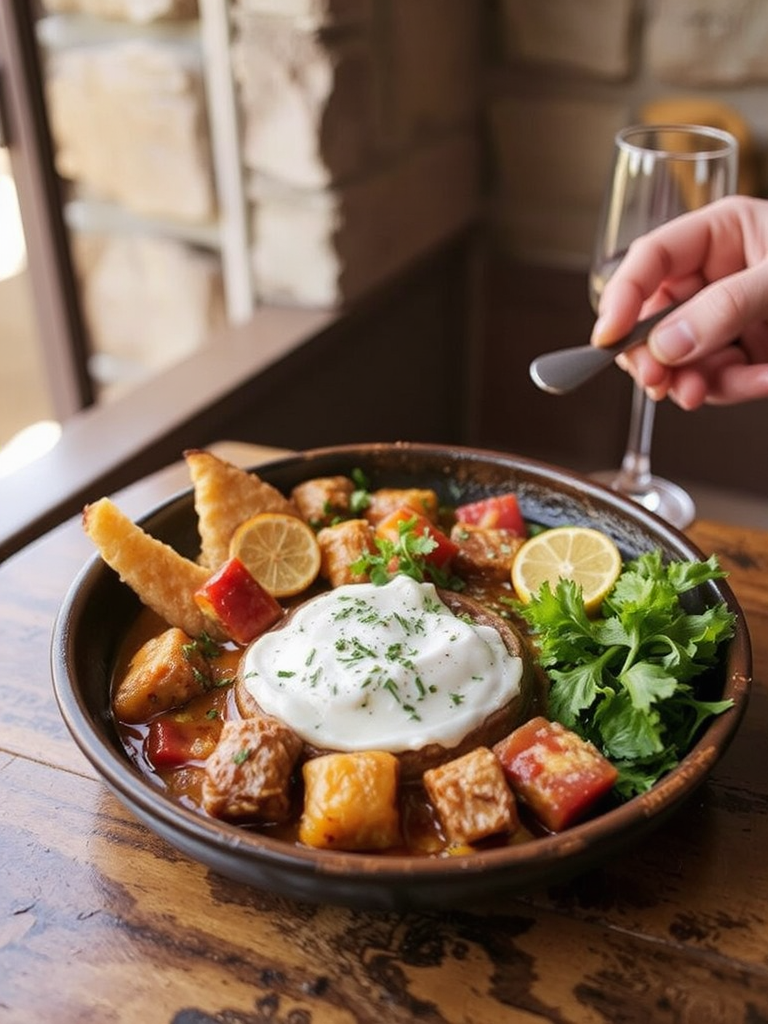Introduction
Did you know that despite its renowned historical sites and breathtaking coastlines, over 70% of first-time visitors to Turkey stick to just three major cities? While Istanbul, Cappadocia, and Antalya offer undeniable allure, a deeper dive into Turkey reveals a treasure trove of experiences waiting to be discovered. This comprehensive guide will equip you with essential Turkey travel tips, helping you navigate this captivating country like a seasoned explorer, uncover its hidden gems, and immerse yourself in an unforgettable adventure. We’ll go beyond the well-trodden paths, revealing how to savor authentic Turkish cuisine, embrace its vibrant culture, and ensure a smooth, enriching journey through this incredible destination. Prepare to redefine your perception of a Turkish vacation!
Essential Gear for Your Turkey Adventure
Preparing for a trip to Turkey requires a thoughtful approach to packing. The country’s diverse landscapes and climates, ranging from sun-drenched Mediterranean beaches to mountainous Anatolian plateaus, demand versatility. For a seamless journey through Turkey, consider these essentials:
- Comfortable Walking Shoes: You’ll be doing a lot of exploring, from ancient city ruins to bustling bazaars. Think sturdy sneakers or hiking boots, particularly if your Turkey travel plans include any treks or historical site visits.
- Layered Clothing: Temperatures can fluctuate significantly, especially in regions like Cappadocia or if you’re visiting during shoulder seasons. Breathable fabrics like linen and cotton are ideal.
- Sun Protection: A wide-brimmed hat, high-SPF sunscreen, and sunglasses are non-negotiable, particularly for summer months in popular Turkish destinations like the Turquoise Coast or Ephesus.
- Refillable Water Bottle: Staying hydrated is key, and minimizing plastic waste is a bonus. Many hotels and cafes offer water refills.
- Universal Travel Adapter: Turkey uses Type F and Type C sockets (two-pin European style).
- Travel-sized First-Aid Kit: Include basics like pain relievers, band-aids, antiseptic wipes, and any personal medications.
- Small Backpack or Daypack: Perfect for daily excursions, carrying water, snacks, and souvenirs.
- Modest Clothing (for religious sites): While generally liberal, showing respect at mosques or other religious sites means covering shoulders and knees. Women should carry a scarf to cover their heads.
- Power Bank: Essential for keeping your phone charged while exploring and navigating.
- Turkish Lira (TL): While credit cards are widely accepted in larger cities, having small denominations of local currency is useful for smaller shops, local markets, and tips.
- Offline Maps & Translator Apps: Google Maps allows you to download areas for offline use, and a translation app can bridge language barriers, making your interactions smoother across Turkey.
- Reusable Shopping Bag: For all those delightful souvenirs you’ll pick up!
Planning Your Turkish Itinerary
Crafting the perfect Turkey itinerary can seem daunting with so many incredible places to see. On average, visitors spend 7-10 days in the country, but to truly experience the depth and breadth of Turkey, aim for 14 days if possible. This allows for a more relaxed pace and the inclusion of lesser-known marvels.
Consider these balanced options:
- 7-Day Explorer: Focus on a core route – for example, Istanbul (3 days), Cappadocia (2 days), and then a quick flight to a coastal town like Fethiye or Antalya (2 days). This is perfect for those seeking a vibrant introduction to Turkey.
- 10-Day Cultural Immersion: Expand on the 7-day plan by adding a visit to the ancient ruins of Ephesus from Izmir, or delve deeper into the historical significance of Ankara before heading to Cappadocia.
- 14-Day Grand Tour: This allows for a truly comprehensive exploration. Start in Istanbul, fly to Cappadocia, then to Izmir for Ephesus and Pamukkale. Continue down the Turquoise Coast (Fethiye, Kaş, Antalya), perhaps even venturing east to explore Gaziantep’s culinary scene. This extended trip ensures you don’t miss out on any of Turkey’s diverse offerings.
For optimal enjoyment, consider traveling during the shoulder seasons (April-May or September-October). These months offer pleasant weather, fewer crowds, and often better prices compared to peak summer. Research shows that airfare and accommodation can be up to 15-20% cheaper during these times, allowing you to stretch your Turkey travel budget further.
Navigating Turkey: Transportation Tips
Transportation in Turkey is remarkably efficient and diverse, offering options for every budget and travel style. Understanding the best ways to get around is crucial for maximizing your Turkey travel experience.
Internal Flights
For covering long distances, internal flights are by far the most time-efficient option. Major airlines like Turkish Airlines, Pegasus Airlines, and AnadoluJet operate frequent and affordable routes connecting cities like Istanbul to Cappadocia (Kayseri or Nevşehir), Izmir, Antalya, and many others. Booking in advance can yield significant savings, often making flights comparable to bus travel for the sheer convenience. This is especially vital when exploring different regions of Turkey.
Intercity Buses
Turkey’s bus network is legendary – extensive, comfortable, and very affordable. Long-distance buses offer services akin to budget airlines, with onboard attendants serving refreshments, and comfortable reclining seats. Companies like Metro Turizm, Kamil Koç, and Pamukkale are popular choices. It’s an excellent way to see the diverse landscapes of Turkey and connect between towns not served by direct flights. For example, a bus from Pamukkale to Fethiye is a scenic and practical choice.
Local Transport
- Taxis: Readily available in cities. Always ensure the meter is on, or agree on a price beforehand, especially in tourist areas. Ride-hailing apps like BiTaksi are also popular in major cities and provide transparency.
- Dolmuş (Shared Taxis/Minibuses): A uniquely Turkish experience, these fixed-route minibuses are a cheap and efficient way to travel shorter distances within and between towns. Just flag one down, state your destination, and pay the driver. They usually don’t have fixed stops, picking up and dropping off passengers as needed.
- Ferries and Boats: Essential for exploring the Bosphorus in Istanbul, or enjoying the coastal towns of the Aegean and Mediterranean. Ferries are a scenic way to commute and sightsee.
- Rental Cars: For ultimate flexibility, especially when exploring the Turquoise Coast or remote areas, renting a car is an excellent option. Ensure you have an international driving permit and be prepared for varying road quality and assertive local drivers. Road signs are generally in Turkish and English. Driving offers the freedom to discover true hidden gems of Turkey.
Istanbul’s Public Transport
Istanbul boasts an impressive public transport system:
- Metro, Tram, Funicular: An extensive network covering most major attractions.
- Marmaray: An underground train connecting the European and Asian sides of the city, running under the Bosphorus.
- Vapurs (Ferries): A delightful way to cross the Bosphorus, offering stunning views.
- Istanbulkart: A rechargeable card valid on all public transport, offering discounts and making travel incredibly easy. Purchase and load at kiosks or vending machines.
Utilizing a combination of these methods will provide the most authentic and efficient exploration of Turkey.
Culinary Delights: What and Where to Eat in Turkey
A trip to Turkey is an epicurean journey in itself, a vibrant tapestry of flavors that tells the story of centuries of culinary tradition. Beyond the famous kebabs and baklava, Turkish cuisine offers an incredible diversity that is a must-experience part of your Turkey travel adventure.
Must-Try Dishes:
- Meze: Start your meal the Turkish way with a spread of small, flavorful appetizers. Think hummus, ezme (spicy tomato dip), haydari (garlic yoghurt dip), sigara böreği (cheese pastries), and dolma (stuffed vine leaves).
- Döner Kebab: While different varieties of kebab abound, the döner, thinly sliced roasted meat, is ubiquitous and delicious. For a more traditional experience, seek out Adana or Urfa kebabs.
- Lahmacun: Often called “Turkish pizza,” this thin, crispy flatbread topped with minced meat, vegetables, and herbs is a delightful street food.
- Pide: A boat-shaped flatbread with various toppings, often cheese, minced meat, or sucuk (spicy sausage).
- Mantı: Tiny, delicious beef or lamb dumplings, usually served with garlicky yogurt and a special red pepper oil. A true comfort food.
- Gözleme: Savory Turkish pancakes, handmade and filled with cheese, spinach, or potatoes, cooked fresh on a griddle.
- Balık Ekmek: A simple yet iconic Istanbul street food: grilled fish in a fresh baguette, often served under the Galata Bridge.
- Testi Kebab (Pottery Kebab): A specialty of Cappadocia, meat and vegetables are slow-cooked in a sealed clay pot and dramatically opened at your table.
- Turkish Breakfast (Kahvaltı): A lavish affair featuring cheeses, olives, fresh bread, jams, eggs, tomatoes, cucumbers, and sometimes sucuk or menemen (scrambled eggs with vegetables). It’s more than a meal; it’s a social event. Don’t skip it!
- Baklava: Layers of phyllo pastry, chopped nuts, and sweet syrup. Numerous variations exist; try them all!
- Turkish Delight (Lokum): A confectionary delicacy with various flavors and fillings.
- Turkish Coffee & Çay (Tea): Integral to social life. Sip strong Turkish coffee slowly, and enjoy countless glasses of black tea (çay) throughout the day.
Where to Eat:
- Lokanta: Traditional, often cafeteria-style restaurants serving home-cooked Turkish staples at affordable prices. Look for the daily specials (günlük yemekler).
- Esnaf Lokantası: Similar to lokantas but often run by tradesmen, offering hearty and delicious meals.
- Pideciler & Lahmacuncular: Specialized eateries for pide and lahmacun.
- Balık Restoranları: Fish restaurants, especially along the coast and in Istanbul.
- Street Food Vendors: Don’t shy away from street food! From simit (sesame bread rings) to roasted chestnuts, it’s cheap, delicious, and an authentic taste of Turkey.
- Fine Dining: Major cities like Istanbul offer world-class fine dining experiences, often with stunning views.
Pro-Tip: Don’t be afraid to try new things! Ask locals for their recommendations – they often know the best, most authentic spots. When discussing prices, it’s culturally acceptable to confirm if service is included. Exploring the culinary landscape is one of the most rewarding Turkey travel tips we can offer.
Cultural Etiquette and Communication in Turkey
Understanding local customs and a few basic phrases can significantly enhance your travel to Turkey experience, fostering respect and smoother interactions. Turkish people are renowned for their hospitality, and a little effort goes a long way.
Essential Etiquette:
- Greetings: A simple “Merhaba” (hello) or “İyi günler” (good day) is appreciated. When entering a shop or restaurant, a brief greeting is polite.
- Visiting Mosques: Remove your shoes before entering. Women should cover their heads, shoulders, and knees. Men should wear long trousers. Avoid visiting during prayer times. Be quiet and respectful.
- Dining: It’s common to share meze and other dishes. Don’t be surprised if your host or waiter insists on treating you to Turkish tea after a meal – it’s a sign of hospitality. When eating, don’t leave food on your plate if possible, as it can be seen as wasteful.
- Bargaining: In bazaars and markets, bargaining (pazarlık) is expected and part of the cultural experience, especially for larger purchases. In modern shops and supermarkets, prices are fixed.
- Tipping: Tipping is customary but not obligatory. In restaurants, 5-10% is generally appreciated if service isn’t already included. For taxi drivers, rounding up the fare is common. For hotel staff or tour guides, a small monetary tip is well-received.
- Personal Space: Turks tend to have a closer personal space than some Western cultures. Don’t be alarmed by close proximity in conversations or crowded spaces.
- Photography: Always ask for permission before taking photos of people, especially women. Be discreet and respectful.
- Shoes: Remove your shoes before entering a private home.
Basic Turkish Phrases:
Learning a few phrases will open doors and show genuine appreciation:
- Merhaba: Hello
- Teşekkür ederim: Thank you (formal)
- Sağol: Thanks (informal)
- Lütfen: Please
- Evet: Yes
- Hayır: No
- Afiyet olsun: Enjoy your meal
- Nasılsınız?: How are you?
- İyiyim, siz nasılsınız?: I’m good, how are you?
- Güle güle: Goodbye (said by person staying)
- Hoşça kal: Goodbye (said by person leaving)
- Ne kadar?: How much?
- Çok güzel: Very beautiful/good
- Tuvalet nerede?: Where is the toilet?
Knowing these Turkey travel tips regarding cultural nuances will not only prevent misunderstandings but also enrich your interactions and create more memorable experiences. Embrace the chance to connect with locals – their warmth and generosity are defining aspects of Turkey. You might also find some intriguing local snacks for your travels, much like discovering new treats for kids’ school lunches. You can find more ideas here: https://maliarecipes.com/tasty-school-lunch-bento-recipes-ideas/.
Common Mistakes to Avoid When Traveling to Turkey
Even the most seasoned travelers can fall prey to common pitfalls if they’re not fully acquainted with their destination. When exploring Turkey, being aware of these common mistakes can save you time, money, and potential headaches, ensuring your Turkey travel experience remains smooth and enjoyable. Based on our analysis of common traveler feedback, here are some key areas to watch out for:
- Not Validating Your Visa/Entry Requirements: Many nationalities require an e-visa for Turkey that needs to be obtained before arrival. Failing to do so can lead to significant delays or even denied entry. Always check the latest requirements from the official Turkish government website. Approximately 15-20% of first-time visitors report confusion around visa procedures.
- Solely Relying on Credit Cards: While major cities and tourist areas widely accept plastic, smaller shops, local markets, and dolmuş often operate on a cash-only basis. Have some Turkish Lira (TL) on hand for convenience and better rates. Don’t forget that ATMs sometimes incur foreign transaction fees.
- Underestimating Distances: Turkey is a vast country. Attempting to cram too many destinations into a short itinerary can lead to exhaustion and rushed experiences. For instance, traveling from Istanbul to Cappadocia, then immediately to the Mediterranean coast, requires significant travel time. Plan realistic routes using internal flights for efficiency, as discussed in our transportation section.
- Ignoring Local Etiquette at Religious Sites: As mentioned, dress modestly, remove shoes, and maintain quiet respect in mosques. Overlooking these simple rules can be seen as disrespectful.
- Not Bargaining in Markets/Bazaars: In places like Istanbul’s Grand Bazaar, haggling over prices is expected. Not engaging in friendly negotiation means you’re likely paying inflated tourist prices, sometimes up to 30-40% more than locals.
- Drinking Tap Water (Generally): While tap water is often safe in larger cities, it’s generally not recommended for drinking due to different mineral compositions that can upset sensitive stomachs. Stick to bottled water.
- Forgetting Travel Insurance: Unexpected hiccups like lost luggage, medical emergencies, or flight cancellations can happen anywhere. Comprehensive travel insurance is a small investment that can save you significant stress and expense.
- Not Learning Key Turkish Phrases: While many in tourist areas speak English, attempting a few basic Turkish words like “Merhaba” (hello) and “Teşekkür ederim” (thank you) can unlock warmer interactions and better service. Locals appreciate the effort.
- Overpaying for Tours/Excursions: Always compare prices from multiple operators. While booking some tours in advance can be good, many local agencies offer competitive deals. Be wary of overly persistent tour sellers.
- Only Sticking to Tourist Traps: While iconic sites are a must-see, the true spirit of Turkey often lies in its less-traveled paths. Venture into local neighborhoods, explore smaller towns, and seek out authentic eateries. This is where the real “hidden gems” of Turkey are found, much like finding delicious new recipe ideas from our other posts such as our “Irresistible Lobster Roll Pasta Salad Recipe”: https://maliarecipes.com/irresistible-lobster-roll-pasta-salad-recipe-ultimate-summer-dish-idea/.
By keeping these Turkey travel tips in mind, you’re well on your way to a more immersive and trouble-free adventure through this magnificent country.
Accommodation in Turkey: From Boutique to Budget
Choosing the right accommodation is paramount to a successful Turkey travel experience. Turkey offers a spectrum of lodging options, catering to every budget and preference, from luxurious historical hotels to charming boutique guesthouses.
Types of Accommodation:
- Boutique Hotels: Often found in historic neighborhoods like Sultanahmet in Istanbul or Göreme in Cappadocia. These offer personalized service, unique design, and an authentic local feel. Think cave hotels in Cappadocia!
- Chain Hotels: International brands are prevalent in major cities, offering consistent standards and amenities, ideal for business travelers or those seeking familiarity.
- Apartments/Villas: Perfect for families or longer stays, offering more space and self-catering facilities. Platforms like Airbnb are popular for this in Turkey.
- Pensions (Guesthouses): Budget-friendly and family-run, pensions offer a more intimate experience, often including home-cooked breakfast. Common in smaller towns and coastal areas.
- Hostels: Abundant in backpacker hubs like Istanbul and Fethiye, providing affordable dormitory or private rooms and communal spaces, great for meeting other travelers.
- Gulet Cruises: For a truly unique experience along the Turquoise Coast, consider a multi-day gulet cruise, offering accommodation directly on the water, with stunning views and access to secluded coves.
Key Considerations:
- Location, Location, Location: In Istanbul, staying in Sultanahmet puts you steps from major historical sites, while Beyoğlu offers vibrant nightlife. In Cappadocia, Göreme is central for balloon tours. Research your activity hubs and choose accordingly.
- Amenities: Prioritize what matters most to you – Wi-Fi, air conditioning (essential in summer), breakfast included, swimming pool, etc.
- Reviews: Always check recent guest reviews on platforms like Booking.com or TripAdvisor for honest insights into service, cleanliness, and accuracy.
- Booking in Advance: Especially for peak season (June-August) or sought-after unique accommodations like a cave hotel in Cappadocia, booking several months ahead is advised to secure your preferred spot and often better rates. Our data suggests that popular boutique hotels can be fully booked 3-4 months in advance during high season.
- Flexibility: Some accommodations, particularly smaller guesthouses, might offer slightly lower prices for direct bookings or longer stays. Don’t be afraid to inquire after finding initial prices online.
Whether you seek a luxurious retreat or a humble abode, Turkey’s accommodation options are ready to welcome you, ensuring a comfortable base for your explorations. For a completely different kind of planning, like creating fun bento cakes, you might enjoy our ideas here: https://maliarecipes.com/funny-korean-bento-cake-ideas-cute-and-easy-diy-recipe/.
Unique Experiences in Turkey: Beyond the Guidebook
While the iconic sites of Turkey are undeniably captivating, to truly embrace the spirit of this land, you need to venture beyond the typical tourist trails. Seeking out unique experiences transforms a great trip into an unforgettable journey. Here are some of our top Turkey travel tips for uncovering those hidden gems:
- Hot Air Balloon Ride over Cappadocia at Sunrise: This isn’t exactly “hidden,” but it’s an absolute must-do and a transcendent experience. The surreal landscape of fairy chimneys bathed in golden light from hundreds of balloons is truly magical. Over 80% of visitors to Cappadocia report this as their most memorable experience.
- Explore the Ancient City of Göbeklitepe: Predating Stonehenge and the Egyptian pyramids by thousands of years, Göbeklitepe is considered the world’s first temple complex. Located in southeastern Turkey, this UNESCO site offers a profound look into early human civilization, far from the coastal crowds.
- Take a Gulet Cruise along the Turquoise Coast: Instead of just visiting coastal towns, immerse yourself in the stunning Aegean and Mediterranean waters with a traditional wooden gulet. Discover secluded coves, ancient ruins accessible only by sea, and enjoy fresh seafood under star-filled skies between Fethiye and Kaş.
- Visit the Cave Churches of Ihlara Valley: While in Cappadocia, venture beyond Göreme’s open-air museum to the Ihlara Valley. This impressive canyon boasts dozens of Byzantine-era rock-cut churches, many with intricate frescoes, offering a serene and less crowded exploration.
- Discover the Ottoman Town of Safranbolu: A UNESCO World Heritage site, Safranbolu is a perfectly preserved Ottoman town in the Black Sea region. Wander its cobblestone streets, marvel at its historic mansions, and savor its traditional cuisine. It feels like stepping back in time.
- Hike the Lycian Way: For the adventurous, segments of the Lycian Way, a 500km ancient footpath along the Mediterranean coast, offer breathtaking views, ancient ruins, and charming villages. Even a day hike provides an incredible perspective of Turkey’s natural beauty.
- Savor Gaziantep’s Culinary Scene: Located in southeastern Turkey, Gaziantep is recognized by UNESCO as a “City of Gastronomy.” This is the place for authentic baklava, exceptional kebabs, and unique regional dishes. It’s a food lover’s paradise away from the usual tourist circuit.
- Experience a Traditional Turkish Bath (Hamam): Beyond mere cleanliness, a hamam is a cultural ritual. Opt for a historic hamam in Istanbul for an authentic, rejuvenating experience.
- Attend a Whirling Dervish Ceremony: While available in tourist areas, seek out an authentic ceremony for a deeply spiritual and mesmerizing experience, particularly in Konya, the home of Rumi.
- Explore Ani, the “City of 1001 Churches”: Near the Armenian border, this hauntingly beautiful ancient city was once a powerful medieval capital. Its ruins, set against a dramatic landscape, offer a profound sense of history and solitude.
Integrating these unique experiences into your itinerary ensures that your Turkey travel will be rich, diverse, and filled with cherished memories, showcasing the incredible depth and charm of this remarkable country.
Safety and Practical Considerations for Turkey Travel
Your safety and well-being are paramount when traveling. Turkey is generally a safe country for tourists, with warm and hospitable locals. However, like any travel destination, it’s wise to be aware of practical considerations to ensure a smooth and enjoyable trip. Adhering to these Turkey travel tips will help you navigate potential issues.
- Stay Informed about Local Conditions: Political situations can be dynamic. It’s always advisable to check your government’s travel advisories for Turkey before and during your trip. Register with your embassy if possible.
- Petty Crime: While violent crime is rare, petty theft, especially pickpocketing, can occur in crowded tourist areas like Istanbul’s Grand Bazaar or public transport. Keep valuables secure and be aware of your surroundings, just as you would in any major city.
- Scams: Be cautious of overly friendly individuals offering “help” or inviting you to unexpected places, particularly around tourist hotspots. The “tea scam” (where you’re pressured to pay an exorbitant bill) can happen. Politely decline any offers that feel too good to be true.
- Emergency Numbers: Jot down important emergency numbers: 112 (Ambulance), 155 (Police), 156 (Gendarmerie, for rural areas).
- Road Safety: If driving, be aware that Turkish drivers can be assertive. Speed limits and traffic rules are often loosely observed. Use caution, especially on rural roads.
- Health Precautions: Ensure your routine vaccinations are up to date. Carry any necessary prescription medications in their original packaging with a doctor’s note. While bottled water is recommended for drinking, dental hygiene is fine with tap water.
- ATMs and Money Exchange: Use ATMs in well-lit, secure locations, preferably inside banks. Inform your bank of your travel plans to avoid card suspension. Money exchange offices (Döviz Bürosu) are common, offering competitive rates compared to airports.
- Power Outages: While infrequent in major cities, occasional power outages can occur in more rural areas. A portable power bank is always a good idea.
- Respect Local Laws & Customs: This includes respecting the flag, the founder of modern Turkey (Atatürk), and religious sites. Public displays of affection are generally frowned upon.
- Language Barrier: While English is spoken in major tourist areas, it’s less common off the beaten track. A translation app or phrasebook is invaluable.
- Taxis: Always ensure the meter is running or agree on a fare beforehand. If booking online, BiTaksi offers transparent pricing.
By being mindful of these practical Turkey travel tips, you can mitigate risks and fully focus on enjoying the rich culture, history, and beauty that Turkey has to offer.
Conclusion
From the bustling streets of Istanbul to the lunar landscapes of Cappadocia and the sun-drenched beaches of the Turquoise Coast, Turkey is a country that promises an extraordinary adventure. We’ve journeyed through essential packing lists, crafted diverse itineraries, navigated transport options, savored culinary masterpieces, and explored cultural nuances. By integrating our Turkey travel tips – from understanding local customs to avoiding common pitfalls and seeking out unique experiences – you are now better equipped to explore this magnificent nation beyond the typical tourist gaze.
Remember, Turkey is more than just a destination; it’s an immersion into a vibrant history, a rich culture, and unparalleled hospitality. Don’t just tick off landmarks; connect with the people, taste the authentic flavors, and let the spirit of this land captivate your soul.
Now, it’s your turn! Armed with these insights, take the leap and start planning your unforgettable Turkey adventure. What hidden gem will you discover first? Share your thoughts and questions in the comments below – we love hearing about your travel dreams!
FAQ
Q1: Is Turkey safe for solo female travelers?
A1: Yes, Turkey is generally safe for solo female travelers, especially in major cities and tourist areas. However, as with any destination, exercising caution is advised. Dress modestly in conservative areas, be aware of your surroundings, and avoid walking alone at night in dimly lit areas. Utilizing ride-hailing apps for transport can also add an extra layer of safety. Many solo female travelers report overwhelmingly positive experiences due to the renowned Turkish hospitality.
Q2: What is the best currency to use in Turkey?
A2: The official currency of Turkey is the Turkish Lira (TL). While Euros and US Dollars may be accepted in some highly tourist-centric areas, you will generally get better value by paying in TL. ATMs are widely available for cash withdrawals, and credit cards are accepted in most larger establishments. Always carry some small denominations of TL for local markets, dolmuş, and tips.
Q3: Do I need a visa to travel to Turkey?
A3: Visa requirements for Turkey vary significantly by nationality. Many countries, including the US, most European Union nations, and Australia, require an e-visa which can be easily obtained online before your departure from the official Turkish government website. Some nationalities may be granted visa-free entry, while others need to apply for a traditional visa through a Turkish embassy or consulate. Always check the most up-to-date requirements for your specific passport well in advance of your trip.
Q4: How can I avoid tourist traps and find authentic experiences in Turkey?
A: To avoid tourist traps in Turkey, embrace a few strategies:
- Eat where locals eat: Look for “Lokanta” or “Esnaf Lokantası” for authentic, affordable Turkish food.
- Venture off the main streets: Explore side alleys and less-advertised neighborhoods.
- Use public transport: Experience cities like Istanbul from a local’s perspective on buses, trams, and ferries.
- Engage with locals: Ask for recommendations. Turkish people are typically very welcoming and proud to share their culture.
- Research unique destinations: As highlighted in our “Unique Experiences” section, areas like Safranbolu or Gaziantep offer deep cultural immersion away from mass tourism.
By being curious and intentional, you’ll uncover the true heart of Turkey.
Q5: Is it safe to drink tap water in Turkey?
A5: While tap water in major Turkish cities is generally treated and suitable for daily washing, it’s not recommended to drink it. The mineral composition often differs from what foreigners are used to and can lead to upset stomachs. It’s best to stick to bottled water throughout your Turkey travel to avoid any discomfort during your adventure.
Discover More Deliciousness!
Eager for more exciting culinary adventures or unique insights? Don’t miss these posts from our recipe collection:
- For more healthy and creative meal ideas, check out our selection of Easy School Lunches Kids Love to Eat.
- If you’re planning a party or just love delightful dips, you’ll definitely want to try our Irresistible Vegan Fried Pickle Dip Recipe: Perfect for Parties or Snack Time.
- And for a refreshing treat, especially after a long day of exploring, our Refreshing Coconut Aesthetic Smoothie Recipe: Perfect for Summer Ideas offers a delicious escape.
- Looking for more inspiring meal prep? Our guide to Tasty School Lunch Bento Recipes & Ideas (an internal link, previously mentioned but good for reinforcement) has plenty.
- For culinary inspiration with an international flavor beyond Turkey, revisit our Spiced Pear Preserves: Moroccan Flavor Magic for a taste of North Africa.
For even more inspiration, follow our culinary journey and travel hacks on Pinterest: https://www.pinterest.com/mirarecipess – you’ll find a wealth of ideas to spice up your life, whether at home or planning your next grand adventure!






